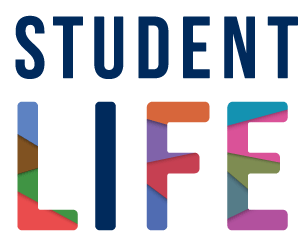Every student has unique strengths and needs for succeeding at U of T. Some students may live with disabilities or health conditions that impact their learning and register with Accessibility Services for accommodations to help them meet academic requirements. With an accessibility advisor, you can develop a personalized support plan that may include using specialized services and adaptive technologies, such as sign-language interpretation, real-time captioning, and note-taking services.
You can also connect with other students through regular programs, events and workshops like Accessibility Dialogues and the Access Us Peer Mentorship Program.
However, there are also some misconceptions about Accessibility Services, specifically about who can access accommodations, how your information is kept and whether students who are registered have it easier.
Here are 4 debunked myths about Accessibility Services:
Myth 1: Accessibility Services only serves students who have mobility or sensory disabilities
Truth: If your health and disability affect your learning, you may be able to register with Accessibility Services to receive academic accommodations.
Registered students may be living with:
- chronic health conditions
- mental health conditions
- attention deficit and hyperactivity disorder
- autism spectrum disorder
- functional and mobility disabilities
- sensory disabilities
- concussions or acquired brain injuries
- temporary disabilities and injuries (e.g. a broken arm)
Nearly 90% of students registered with Accessibility Services have non-visible or non-evident disabilities.
Myth 2: Accessibility Services is only for undergraduate students
Truth: Accessibility Services is open to students in every program, faculty and division.
“About 25% of registered students are in graduate programs or second-entry programs. They are our future professors and researchers. Our future doctors, nurses and lawyers,” says Rahul, a learning strategist at Accessibility Services.
Myth 3: If you register with Accessibility Services, it will appear on your transcript
Truth: Your registration with Accessibility Services is not recorded on your transcript and you do not have to report your disability or health to professors or other staff at U of T.
“We respect your privacy and keep your information confidential. With your consent, your information will only be shared on a need-to-know basis in the case that other staff and faculty need to provide you accommodations. For example, notifying test and exam services of your exam accommodations,” says Rahul.
Myth 4: Students registered with Accessibility Services have it easier than other students or get an advantage by registering.
Truth: “Students registered with Accessibility Services have to meet the same academic standards and demonstrate the same knowledge and skills as their peers. Our office provides accommodations and support to students with disabilities and also upholds academic integrity at the University,” says Rahul. In the De-Stigmatizing Accessibility Services blog post, Life @ U of T and Accessibility blogger, Alyson, writes, “Students who get accommodations do not have it easier than others — our accommodations allow us a level playing field.”
“Students with disabilities are thriving at U of T in nearly every program, faculty, and division. Students registered with our service are defined by their intelligence, hard work and resilience,” adds Rahul.
To learn more about programs and services offered by Accessibility Services and how to register with them, visit accessibility.utoronto.ca




